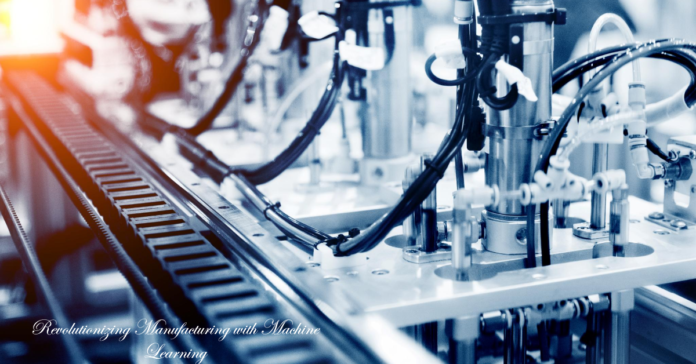Machine learning (ML) has proved to be an irreplaceable tool in the manufacturing sector providing a bundle of applications which help to improve efficiency, quality, and innovation. Following is a breakdown of what ML is being utilized for in the manufacturing area.
Predictive Maintenance
The advancement of machine learning is nowadays recognized as a great blessing for manufacturing done in a predictive way. This is what prompts machine learning algorithms to mine the data of the machinery and apparatus, hoping to find any recurrent patterns or signs of potential breakdowns. Seeing this early will help institution to plan the repairs before any breakdown occurs. This proactive approach means that machines will get less downtime, in addition to reduced maintenance expenses. As a result, the whole production process will be considerably more dependable and efficient.
Quality Control and Inspection
Machine Learning (ML) models using computer vision are the buzzing topic in the domain of quality control. The algorithms are capable of detecting the differences that identify aggregated products of high quality from those with flaws by scanning past data. They thereby take control of the quality assurance procedure where they produce flawless outputs and often enhance industrial efficiency. Such automation not only speeds up the operations on the whole but also reduces the chances of errors caused by humans.
Supply Chain and Inventory Management
Efficient supply chain and inventory management hold a special significance for manufacturing operands. ML focuses on these areas by avoiding manual tasks such as warehouse management, monitoring inbound and outbound shipments, and predicting customer demand.
This generates a more reactive and flexible supply chain that can adapt to fluctuations in demand, hence, decreasing costs.
Generative Design and Product Development
Generative design software, that integrates AI and ML, makes it possible to develop products that were not possible before. Using vast amounts of data, ML solutions can assist in designing new products or improving existing ones, matching needs and uncovering hidden flaws. This in turn allows the creation of more competitive products which correspond more closely to the market’s needs.
Digital Twins
Manufacturers typically employ digital twins, virtual representations of physical objects or systems, to convey and analyze real-life conditions. They allow manufacturers to check and enhance new items, accessories, and place of manufacturing without physical prototypes and therefore save time and resources.
Energy Consumption Forecasting
Machine learning algorithms can collect data from factory machinery to detect patterns in energy consumption, enabling manufacturers to foresee and optimize energy usage. This helps as an economically viable method, at the same time, promotes environmental sustainability.
Robotics and Automation

The combination of ML and robotics is resulting in higher level of automation in manufacturing. Machines with ML algorithms inside can carry out complicated tasks and speed up the process as well as protect people from risks and doing such activities. Thus, this trend of automation is improving productivity and safety of the workers.
Cybersecurity
Since digital technologies become more vital for manufacturing, cybersecurity becomes even more critical. ML can control the access to digital platforms and information, it can protect against cyber threats, the data of great value can be secured.
Workforce Empowerment and Safety
ML applications are in no way meant to replace the labor of people but are also expected to help the workers. ML automation relieves employees from frequent and dangerous tasks. Instead, they could concentrate on more sophisticated and creative facets of their trade, which results in a healthy working condition.
Challenges and Considerations
To integrate ML into the manufacturing process demands a thorough approach and the strategy. How they will develop a system of consistent data collection, define the target uses, and make sure they have the staff knowledge is not clear. And of course, it is imperative to have some patience, since ML models become better with time and more data.
Conclusion
Ultimately, machine learning is influencing the manufacturing future as it presents the solutions which advance productivity, quality, and innovation. With the technology being further developed, its uses in manufacturing process are expected to be greater, therefore manufacturing is going to be revolutionised completely.


